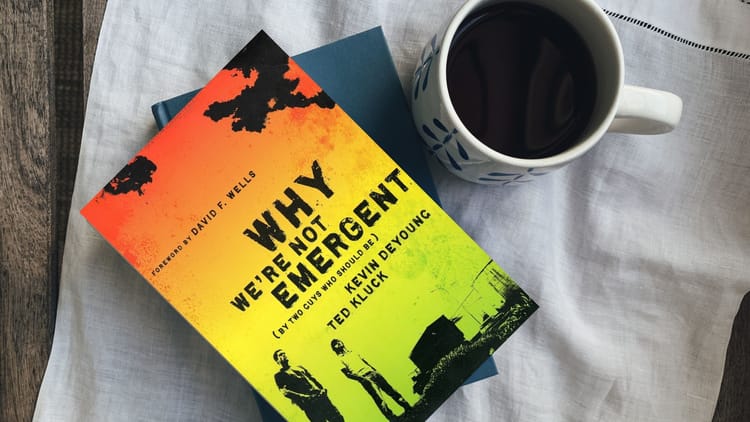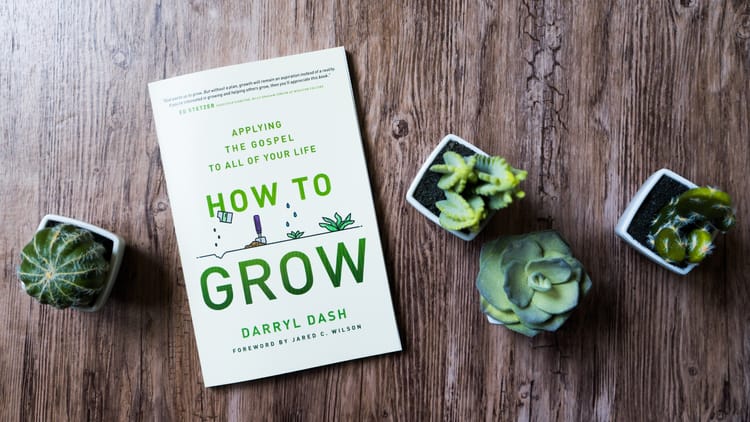Longing for Motherhood: An Interview with Chelsea Patterson Sobolik

Today marks the release of Chelsea Patterson Sobolik’s book Longing for Motherhood: Holding On to Hope in the Midst of Childlessness. It’s an important book on a neglected topic. (You can read an excerpt from the book here.)
Chelsea was kind enough to answer my questions about her new book, and how the church can serve those who struggle with childlessness.

Many women and men experience infertility and childlessness, and yet we don’t often talk about it. Why do you think there’s such a taboo about this topic?
This topic touches the lives of so many people – more than most people are probably aware of. Infertility affects 12 percent of the U.S. population – over 1 in 10 couples, and roughly 15 to 20 percent of all pregnancies in the U.S. will end in miscarriage. Those that are walking through a season of childlessness are sitting in every church in America, yet it remains a taboo topic.
One of the reasons is because our fertility, our lack thereof is such an intimate part ourselves. It can feel uncomfortable to be the first one to share that you’re walking through a season of infertility or miscarriage. Not only are you struggling with an unfilled desire, but a private and often unspoken struggle. No one knows that you can’t have children or are struggling unless you tell them. No one knows the sorrow of your heart or how heavy and difficult this situation can be. Childlessness is not a visible pain. It’s not easily on display for the world to see. When someone walks through a visible trial, such as an illness, while still difficult, the fact that it’s unconcealed makes the way clearer for talking to others about your struggle.
There can also be some shame and guilt involved in struggling to have children. When having children doesn’t come as easily as we anticipated, we can start to blame ourselves. It’s easy to think “What’s wrong with me?” or “What did I do to make having children so difficult?”
How can churches learn to support women and men within their congregations who are experiencing childlessness?
One of the biggest ways churches can care well for the men and women in their congregations is to be mindful of their particular trial. Probably without realizing it, churches may isolate the childless by not integrating the subject into the regular conversations of the life of the church.
If so many people struggle with being childless, why isn’t this a conversation that’s had more often? I believe one of the reasons is that the church often doesn’t know how to respond appropriately to pain. People’s hearts are often in a good place and desiring to help, but they simply don’t know how. One of the first steps to creating safe places is by raising awareness. When pastors and their flocks are more conscious of the childless in their midst, they’ll begin changing their language, what they joke about, and the questions they ask.
This mindfulness should shape how a church structures services such as Mother’s and Father’s Day. While we’re commanded to rejoice with those that rejoice, we’re also commanded to weep with those that weep. I don’t think we take that verses seriously enough. We should create safe environments for people to grief. It’s vital that churches should learn how to grieve well with others.
Scripture has a lot to say about this topic, but I don’t think I’ve heard many sermons that address it. What have you learned from your study of Scripture?
Notably, there are several prominent stories in the Bible that feature women who struggled with childless- ness. How did these women respond when their bodies wouldn’t bear babies? For me, the most vivid story of barrenness is Hannah’s story, found in 1 Samuel. In that time, it was customary for men to take multiple wives. Elkanah was married to both Hannah and Peninnah. Seemingly, the most important part of their story is children, or lack thereof. Peninnah had children, while Hannah remained barren. The MacArthur Study Bible suggests that Elkanah married Peninnah because Hannah was barren. Peninnah was likely the second wife, but the first to bear children.
I can only imagine how difficult this was for Hannah! Throughout the opening verses of this chapter, we learn of Hannah’s struggle, and we’re told that she wept bitterly, refused to eat, was deeply distressed, filled with anxiety, and vexed (see 1 Samuel 1:3–11). In addition to her barrenness, Peninnah—whom the Bible refers to as Hannah’s rival—would provoke and irritate her, constantly reminding her of what she lacked—fertility. Hannah’s own heartbreak was surely compounded by the expectations of women in the ancient world, which equated bearing children with God’s blessing.
I’m so encouraged that the Lord chose to include this story in the Bible, because it reminds us that childlessness is indeed a trial and is worth mourning. Through these stories, we see that God is present in this trial and that He cares about those experiencing it. These biblical examples also teach us that our natural emotional reaction should not be downplayed or quashed. We were created with tears and with emotions for a reason.
We see that Hannah responded by pouring out her soul to the Lord, making a solemn vow that if God would give her a son, she would dedicate him to the Lord (1 Sam. 1:11). And the Lord was indeed gracious to Hannah, whose very name means grace. “The lord remembered her. And in due time Hannah conceived and bore a son” (1 Sam. 1:19–20). Even if He’d chosen to act in a different way, our heavenly Father is worthy of our faith and trust. And because the rest of the story is told in the Bible, we get to see how God’s plan for that child unfolded and that Samuel became a prophet of the Lord.
We often don’t know how to suffer well. How can we hold on to hope while dealing honestly with our hurts?
Remember that grief and hope aren’t at odds with each other. They can co-exist in your heart. Our tendency is to want to heal from pain as quickly as possible, and we think when we heal, that’s when we’ll find hope. But hope is possible in the midst of suffering. It’s important to allow yourself to actually feel the feelings of grief and loss. Stuffing them down, or rushing through them doesn’t ultimately lead to healing. Feel your feelings. Wrestle with the Lord in the midst of them. He’s big enough to handle our honest prayers and tears.
One of the things that helps us hold onto hope in the midst of grief is remembering that our trials have an expiration date. Charles Spurgeon said, “Our sorrows are all, like ourselves, mortal. There are no immortal sorrows for immortal souls. They come, but blessed be God, they also go. Like birds of the air, they y over our heads. But they cannot make their abode in our souls. We suffer today, but we shall rejoice tomorrow.”
How can we pray for you as this book comes out?
Please pray that the Lord uses this book to minster to the hears of childless women and men! And that it serves as a resource to pastors, church leaders, and friends and family who are seeking to care well for those that are struggling. Also, please pray for my heart! Writing and talking about this book is emotionally exhausting.
I’ll be praying. Thank you, Chelsea!
More from Amazon.com






